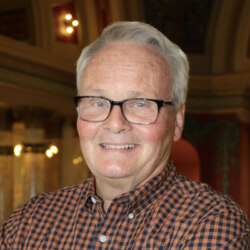The Uncommon Ella Knowles Haskell
"The uncommon Ella Knowles Haskell played a major role in taking the common—no votes for women—and making it both uncommon and popular. Montanans should be very proud of her."
Praise for the “common man” is all too common in the world. It’s the “uncommon” man (or woman) for whom we ought to be most grateful.
Who in their right mind tells their children to aspire to nothing more than common or average? Good parenting is nothing less than encouraging children to become better than simply “run of the mill.” Since when is it a virtue to blend in with the mob, indistinguishable from the mediocre? Who itches to see a movie if the reviews suggest it’s just ordinary and unexceptional?
A perfect example of an uncommon woman is Ella Knowles Haskell (1860-1911). Born in New Hampshire, she moved to Montana in 1888 at the age of 28 to relieve her tuberculosis. She lived in the Treasure State for the remaining two decades of her life.
One way to exhibit one’s uncommonness is to be first in something. The list of firsts in Ella’s life is more than a little impressive. Aside from being the first female notary public in Montana, she was also the:
- First woman to lobby the territorial legislature to allow women to practice law in Montana. She won that battle, then became the first woman admitted to the state’s Bar Association as well as the state’s first female lawyer at a time when women in the legal profession numbered a few dozen in the whole country.
- First woman to address a state legislature and the first to be nominated by a major party for a statewide office in Montana (in this case, attorney general). She narrowly lost, perhaps because women couldn’t vote for another 30 years, but her victorious opponent was so impressed that he appointed her deputy attorney general and then married her.
- First Montana woman elected as a delegate to a national political convention. It was the 1896 Populist Party convention in St. Louis, Missouri.
In a fascinating biographical sketch of Knowles, Montana State University historian Richard B. Roeder writes, “How can it be that Ella so readily and successfully crashed the gender line? Her personality is part of the answer. She was attractive, very bright, persistent, and full of grit.” In other words, she was uncommonly appealing—by no means just another ant on the ant hill.
This remarkable woman, largely self-taught in legal matters, became an authority on mining law and an owner of mining properties. She championed the right of women to vote all over the state and beyond, becoming one of the most notable suffragettes of her time. None of these achievements were common for women in her day. For good reason, she features prominently now in the Gallery of Outstanding Montanans in the Capitol Rotunda in Helena.
The role model that was Ella Knowles Haskell made the case for women’s right to vote at least as well as her rhetorical eloquence. How much sense does it make to deny the franchise to a smart, accomplished, property-owning citizen such as her?
Some people may look back on late 19th Century America in disdain because women couldn’t vote. But consider the context: For most of human history, nobody could vote—neither man nor woman. You did as you were told, as serf, slave or subject. Most women in the world even in Ella’s day didn’t vote and couldn’t vote. In Mexico, for instance, women couldn’t vote until 1953.
The uncommon Ella Knowles Haskell played a major role in taking the common—no votes for women—and making it both uncommon and popular. Montanans should be very proud of her.
*****
Lawrence W. Reed writes a monthly column for the Frontier Institute in Helena, on whose board he serves. He is president emeritus of the Foundation for Economic Education and blogs at www.lawrencewreed.com.
